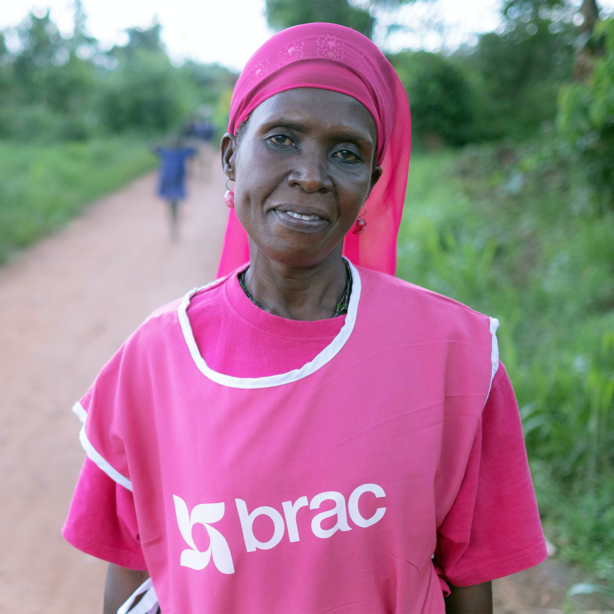Professionalized Community Health Worker (CHW), Janet
The central users of apps built with the CHT
CHWs are the central users of apps built with the Core Framework. CHWs conduct household visits and are responsible for the health of their community. CHWs are known and trusted locally and typically live in and are chosen by their community. Their degree of health training, responsibilities, and support depends upon their country and program. The majority of CHWs are women, ranging from 25-60 years old.

CHW
“It took a while to be trusted. We had to prove our worth, but now we are well appreciated.”
About
Janet is a mother and a farmer. She takes care of her daily BRAC work after finishing her farm work. She has poor eyesight. Janet has a feature phone. She has seen smartphones but never used one. She has no electricity at her home. She charges her phone at her friend’s house. Janet has a trusted boda driver who she uses to help her deliver drugs.
Values
- Life: believes in the sanctity of life and strives to protect it by extending health care services
- Family
- Education
- Honesty
- Faith/Religion
Responsibilities
- Registering new people and families
- Conducting guided health assessments
- Screening for and tracking specific conditions
- Providing basic medicines and health supplies
- Reporting danger signs & referring to clinics
- Following up about clinic visits and care
Needs
- Accurate information about the health status of her patients
- Close monitoring of the pregnant women to ensure that all deliveries take place at the health facilities
- All children to be immunized according to the expanded immunization program
- Children’s growth to be monitored
- Fast transfer of community members who need emergency health care to the health facilities- ambulance transfer
Motivations
- Recognition from managers, colleagues and the broader community
- Financial rewards such as monthly recharges for SMS, voice calls and data, rewards based on performance metrics, reimbursements or allowances for travel costs between communities being served and facilities
- Opportunities for continued education, training and skill improvement via refreshers, computer education etc.
- Career development, especially in younger cohorts: added responsibilities for high-performing CHWs such as training new CHWs or mentoring low-performing CHWs.
A Day in the Life
Janet is a CHW who has been working for BRAC for 2 years. She lives in Bembe Central, a periurban town. She visits 10 and 15 homes daily where many of the families live in brick/clay huts reinforced with straw with no electricity, running water or internet connection.
Janet visits homes based off a list after she finishes her day job. There is no particular order, although she follows the register. While she may get some specific calls, most days she just visits homes and records her visits in the book. Some visits can be as quick as 2 minutes. She walks along a dirt road with her BRAC outfit making her stand out. She often calls out to her neighbors as she walks alon the road. In the rainy season — when diarrhea is often worse — these roads flood. Janet does not visit homes on these days.
During her visits Janet carries her register, an education booklet, drugs and other sales material in her bag which is very heavy. She readjusts the weight of her bag several times and sometimes drops her drugs. Bodas play an important role in the health system here. Janet has a trusted body driver, whom she asks to deliver drugs.
On days with her Supervisor, Janet might visit 20-25 homes. The Supervisor joins her at least once a month where they also conduct “health forums” together. Supervisors conduct technical procedures,such as taking BP, marking columns in the CHWs register and later copies this into their own during refresher trainings.
A normal day lasts about 2 hours.
Did this documentation help you ?